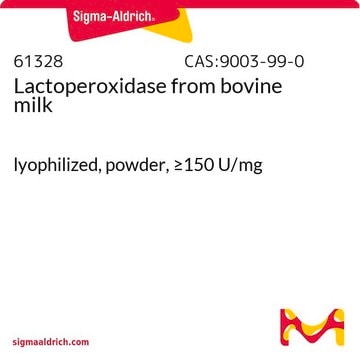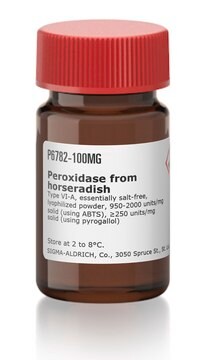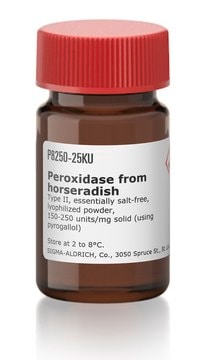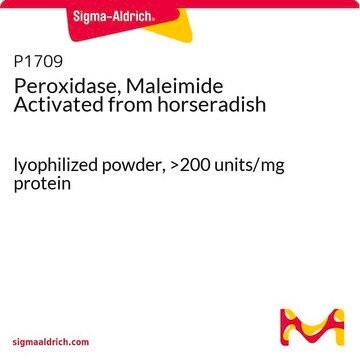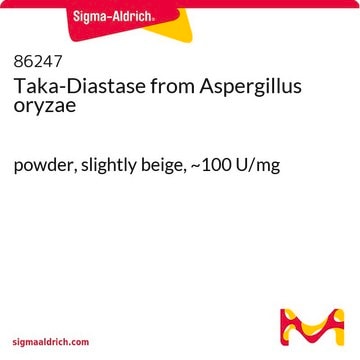L2005
Lactoperoxidase from bovine milk
lyophilized powder (essentially salt-free), ≥200 units/mg protein
Synonym(s):
Donor:hydrogen peroxide oxidoreductase, Peroxidase
About This Item
Recommended Products
biological source
bovine milk
form
lyophilized powder (essentially salt-free)
specific activity
≥200 units/mg protein
absorbance ratio
A412/280 nm 0.7-0.9
UniProt accession no.
storage temp.
−20°C
InChI
1S/H2O3/c1-3-2/h1-2H
InChI key
JSPLKZUTYZBBKA-UHFFFAOYSA-N
Gene Information
cow ... LPO(280844)
Looking for similar products? Visit Product Comparison Guide
General description
Application
Biochem/physiol Actions
Unit Definition
Analysis Note
substrate
Signal Word
Danger
Hazard Statements
Precautionary Statements
Hazard Classifications
Resp. Sens. 1
Storage Class Code
11 - Combustible Solids
WGK
WGK 1
Personal Protective Equipment
Certificates of Analysis (COA)
Search for Certificates of Analysis (COA) by entering the products Lot/Batch Number. Lot and Batch Numbers can be found on a product’s label following the words ‘Lot’ or ‘Batch’.
Already Own This Product?
Find documentation for the products that you have recently purchased in the Document Library.
Customers Also Viewed
Our team of scientists has experience in all areas of research including Life Science, Material Science, Chemical Synthesis, Chromatography, Analytical and many others.
Contact Technical Service